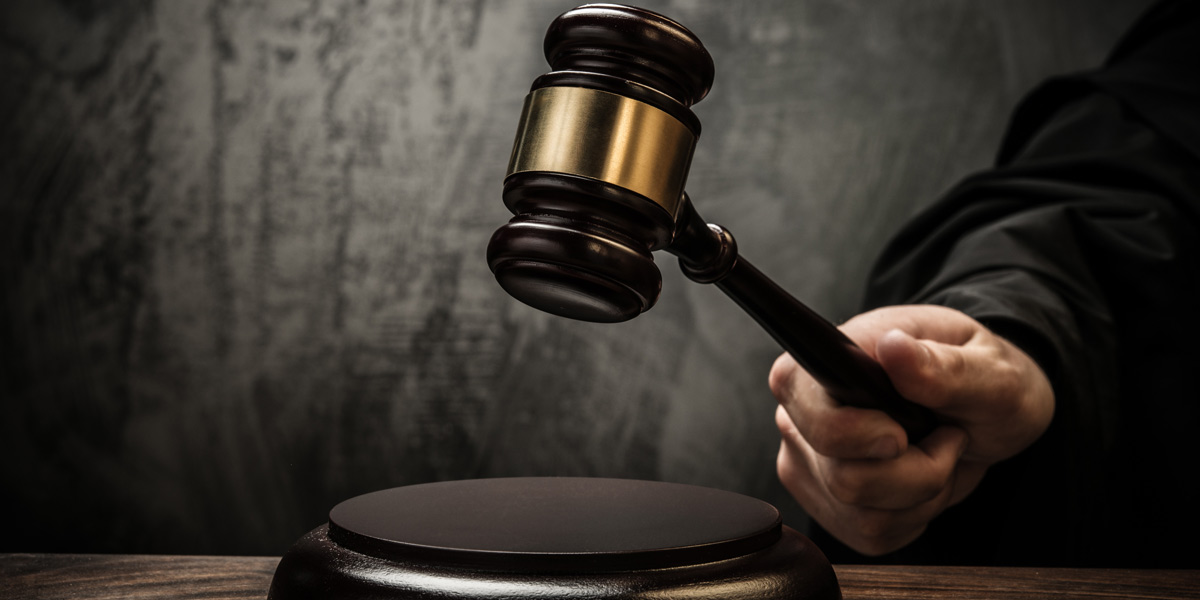
Agrochemical corporation found responsible for Roundup weedkiller’s health risks in bellwether federal trial
In a wonderful development, a federal jury has ruled that Monsanto was liable for a California man’s cancer and ordered the company to pay him $80m in damages.
Here's a great video interview with the attorneys that defeated Bayer-Monsanto in the Hardeman vs Monsanto case, as well as with the plaintiff, cancer sufferer Edwin Hardeman.
---
Monsanto found liable for California man's cancer and ordered to pay $80m in damages
Sam Levin
The Guardian, 27 Mar 2019
https://www.theguardian.com/business/2019/mar/27/monsanto-trial-verdict-cancer-jury
* Agrochemical corporation found responsible for Roundup weedkiller’s health risks in ‘bellwether’ federal trial
A federal jury ruled that Monsanto was liable for a California man’s cancer and ordered the Roundup manufacturer to pay $80m in damages.
The ruling on Wednesday, which holds the company responsible for the cancer risks of its popular weedkiller, is the first of its kind in US federal court and a major blow to Monsanto and its parent company, Bayer. A spokesperson said Bayer would appeal.
In a verdict during an earlier phase of the trial, the jury in San Francisco unanimously ruled that the herbicide was a “substantial factor” in causing the cancer of Edwin Hardeman.
Hardeman, a 70-year-old Santa Rosa man, was the first person to challenge Monsanto’s herbicide in a federal trial, alleging that his exposure to the glyphosate weedkiller caused him to develop non-Hodgkin’s lymphoma (NHL), a cancer that affects the immune system.
The case has attracted international attention and raised new questions about the potential health hazards of Roundup. It also challenged the conduct of Monsanto, now owned by the German pharmaceutical company Bayer. The corporation is facing more than 9,000 similar lawsuits across the US that allege Roundup has caused cancer.
The jury ruled that Roundup’s design was “defective”, that the product lacked sufficient cancer warnings, and that Monsanto was negligent in its failure to warn Hardeman of the NHL risk. The jurors ordered the company to pay Hardeman $75m in punitive damages, $200,000 for past economic losses and $5.6m in non-economic losses.
“As demonstrated throughout trial, since Roundup’s inception over 40 years ago, Monsanto refuses to act responsibly,” Hardeman’s lawyers said in a statement. “It is clear from Monsanto’s actions that it does not care whether Roundup causes cancer, focusing instead on manipulating public opinion and undermining anyone who raises genuine and legitimate concerns about Roundup.”
Hardeman’s case is considered a “bellwether” trial in the federal court system, meaning the verdict could have an impact on how future litigation and potential settlements are resolved. In a historic verdict last year, a state jury ruled that Roundup caused the terminal cancer of Dewayne Johnson, a former school groundskeeper, and that Monsanto had “acted with malice or oppression” and owed the plaintiff $289m in damages.
“As demonstrated throughout trial, since Roundup’s inception over 40 years ago, Monsanto refuses to act responsibly,” Hardeman’s lawyers said in a statement. “It is clear from Monsanto’s actions that it does not care whether Roundup causes cancer, focusing instead on manipulating public opinion and undermining anyone who raises genuine and legitimate concerns about Roundup.”
Hardeman’s case is considered a “bellwether” trial in the federal court system, meaning the verdict could have an impact on how future litigation and potential settlements are resolved. In a historic verdict last year, a state jury ruled that Roundup caused the terminal cancer of Dewayne Johnson, a former school groundskeeper, and that Monsanto had “acted with malice or oppression” and owed the plaintiff $289m in damages.
Aimee Wagstaff, Hardeman’s lawyer, told the jury that Monsanto had a “cozy relationship” with Environmental Protection Agency (EPA) employees and had also paid “prestigious” scientists to author “favorable” studies: “Monsanto has influenced and manipulated the science through its relationships with regulatory officials and through ghostwriting.”
Hardeman testified that he had sprayed the herbicide for nearly three decades and at one time got it on his skin, before he was diagnosed with cancer. He used the chemical to control weeds and poison oak on his properties, starting in 1986. He also said in court he would not have used the product if it had come with a cancer warning.
Bayer has continued to argue that Roundup is safe to use, doesn’t cause cancer and does not require a label warning. The corporation’s attorney, Brian Stekloff, told the jury prior to the verdict that their decision should not be a “popularity contest” about the company: “Monsanto, consistent with the science, consistent with how the science was being viewed around the rest of the world, did act responsibly.”
The company said in a statement on Wednesday that it was “disappointed” with the decision, but said the “verdict does not change the weight of over four decades of extensive science and the conclusions of regulators worldwide that support the safety of our glyphosate-based herbicides and that they are not carcinogenic”.
In 2015, the World Health Organization’s international agency for research on cancer (IARC) ruled that glyphosate was “probably carcinogenic to humans”, based on a review of existing research. The EPA, however, has deemed glyphosate safe for use.
Hardeman’s legal team said the unanimous ruling made a strong statement about the company’s behavior over the years: “Today, the jury resoundingly held Monsanto accountable for its 40 years of corporate malfeasance and sent a message to Monsanto that it needs to change the way it does business.”










